
Exposé Online
What's old
Exposé print issues (1993-2011)
- 1 (October 1993)
- 2 (February 1994)
- 3 (May 1994)
- 4 (August 1994)
- 5 (October 1994)
- 6 (March 1995)
- 7 (July 1995)
- 8 (November 1995)
- 9 (March 1996)
- 10 (August 1996)
- 11 (February 1997)
- 12 (May 1997)
- 13 (October 1997)
- 14 (February 1998)
- 15 (July 1998)
- 16 (January 1999)
- 17 (April 1999)
- 18 (November 1999)
- 19 (May 2000)
- 20 (October 2000)
- 21 (March 2001)
- 22 (July 2001)
- 23 (December 2001)
- 24 (April 2002)
- 25 (September 2002)
- 26 (February 2003)
- 27 (August 2003)
- 28 (December 2003)
- 29 (April 2004)
- 30 (September 2004)
- 31 (March 2005)
- 32 (September 2005)
- 33 (May 2006)
- 34 (March 2007)
- 35 (January 2008)
- 36 (October 2008)
- 37 (July 2009)
- 38 (July 2010)
- 39 (Summer 2011)
Features
Across the Universe —
The Robin Taylor Interview
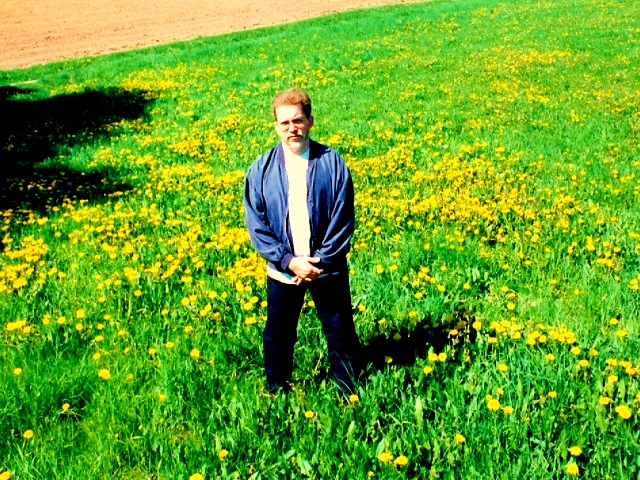
Out of seemingly nowhere in the early 1990s, Danish composer and multi-instrumentalist Robin Taylor appeared on the scene with his debut album Essay. A few years later saw the eponymous debut of his studio band project Taylor’s Universe, which to date has released close to a dozen CDs. From around 2002 Taylor also led a live improvisational band Taylor’s Free Universe, with a half-dozen recordings to their credit. Taylor was kind enough to sit down with Exposé and talk about his musical origins and interests, as well as his future plans.
by Peter Thelen, Published 2013-09-20
Robin, How did you get started in music, and was the guitar your first instrument?
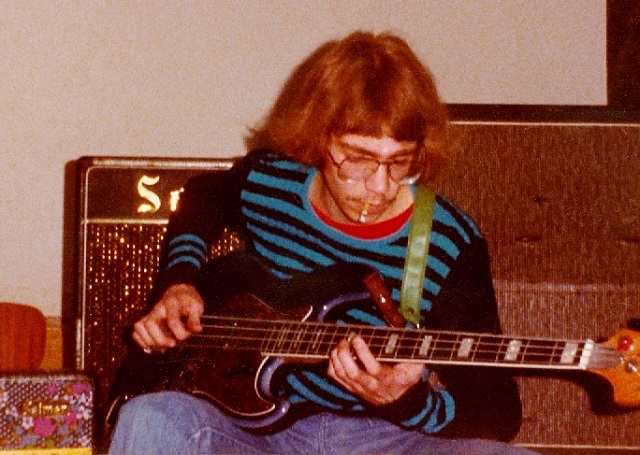 My first serious introduction to music came when I received a Beatles single for my eighth birthday, I think. The following years I collected more of their stuff — both singles and LPs, and I was even introduced to The Rolling Stones, The Who and others, when I went to visit my cousin, who was in his teens by then. Listening to radio also had a deep impact on me, so I knew a bit of what was going on when I decided to start playing music myself.
My first serious introduction to music came when I received a Beatles single for my eighth birthday, I think. The following years I collected more of their stuff — both singles and LPs, and I was even introduced to The Rolling Stones, The Who and others, when I went to visit my cousin, who was in his teens by then. Listening to radio also had a deep impact on me, so I knew a bit of what was going on when I decided to start playing music myself.
My first 'real' instrument was a cheap Japanese electric guitar that I bought from my savings, when I was going to form a band with some classmates from school. It was cheap and lousy, but none of us had any money, as we were just 12-year-old school kids. Our drummer started out with just a snare drum, and our amplification consisted of old radios. I'm sure we were not the only band starting out like that in those days (1968), but we were very determined to form our own band, after listening to The Beatles, Cream and much of the psychedelic stuff that was [in style] at the time. Not long after, I removed two of the strings on my guitar, and so it became my first bass guitar (laughs)... Everybody wanted to be guitarists, but I didn't mind the change, so in reality I was a bass player from the start of my career and for the next 10 years or so. The year after I got my hands on a Höfner bass guitar; the 'violin' model that Paul McCartney had made so famous with the Beatles. I really hated both the sight and sound of it — but it was a bass guitar alright.
My first band never made any results — apart from making a lot of noise. It was learning by doing; we were never taught anything. The band had a sudden ending within the first year, as two of the members were tragically hit by a drunken driver. Our guitarist died of his injuries, and our drummer was traumatized, so he and his family moved away and left no trace. That was it! I had also lost the spirit, so my bass rested for the next couple years — until I was requested to join another local band, who needed a bass player.
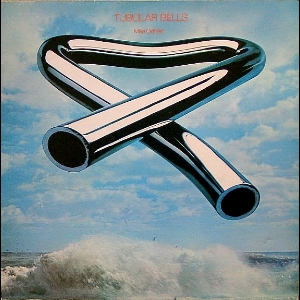 That is a pretty tragic ending, and your response is completely understandable. I presume with that first band you were just doing cover tunes or jamming. At what point did you start composing?
That is a pretty tragic ending, and your response is completely understandable. I presume with that first band you were just doing cover tunes or jamming. At what point did you start composing?
We were trying to do cover tunes in that first band — but it was just awful. When I took up playing again, my new bandmates were a little older than I was, but still very inexperienced. We also tried covering others' tunes, but it didn't work out well, so we always ended up jamming. We started to get (unpaid) jobs at school parties and so on, and it was very embarrassing; I know, because I still have recordings we made back then. Well, our performances got more and more structured, as we became better players — but I got more and more fed up with just playing covers, so I started to write some material myself, which didn't go well with the other members, as they didn't quite understand what I was aiming at. Also, they didn't have the skills to play what I wanted them to do. So I left the group after three years. I had met a guy, Benny, who was very ambitious. He had been playing guitar in a band that was much worse than the one I had just left — but we had both discovered the very early works of Mike Oldfield, and that was a direction we would like to explore. We sat together at night and composed long symphonic pieces on guitars, which we arranged for a wide range of instruments, that we could only dream of. These sessions were very educational for me, as I learned a lot about the complexity in music on higher levels. Unfortunately these works never went any further; no performances nor recordings... We had no money, no equipment — we could only dream of better times!
How did your musical interests evolve from those early days?
The next couple a years, I was back playing bass in various local groups, whether it was written material or just never-ending jams... not exactly my kind of thing. Many of the people involved were so poor on their instruments, that I literally had to teach them how to play! I lost my patience and started out working for myself, borrowing tape recorders, just ordinary home stereo equipment, from friends, so I could make my own recordings, playing all instruments myself. No multi-track luxury — just the 'ping-pong' way, transferring from one machine to another and vice versa. This made sense to me; I could create music just as I wanted it, without having to deal with terrible players. The bad thing was, that the results sounded like shit, compared to professional recordings — but the process was very educational. The equipment got better through the following years, and some of my earliest releases were actually, more or less, recorded at home. But it took quite a few years before I had enough self confidence to take the step to publicize my music!
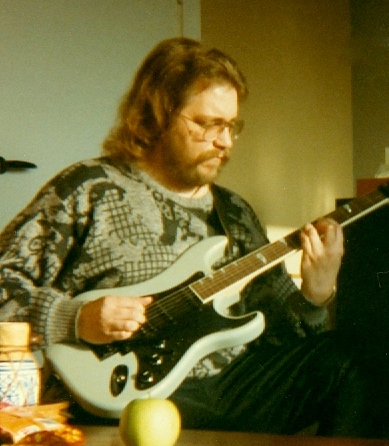 Did you receive any formal music training along the way?
Did you receive any formal music training along the way?
No, I never had formal musical training of any kind; it has always been learning by doing... I listened to records and I went to concerts, where I took place as close to the stage as I could, so I could watch every move...
During those years when you were starting to make your own sound-on-sound recordings at home, were you playing with other bands (covers or originals), and did you record with any other bands or artists prior to releasing your own music?
I did occasionally jam with other bands, but it didn't really mean anything to me; composing music was what I wanted to do. At the end of 1979, I was for the last time asked to come and play bass in a band, which I had known for years. They had been trying to establish themselves as a country-rock band for some time, but now they were looking for a new direction. They were actually pretty good players, but country-rock wasn't my cup of tea at all. In the months that followed, I took over the direction more and more, which made the members leave one by one (laughs), and the people replacing them were some of my old mates, so in the end the band fell apart, as it seemed pointless for me to carry on this way. From then (ultimo 1980), I decided: No more of this childish fooling around in rehearsals with people who hardly can play. I returned to lo-fi home recordings, and did not record with anybody else.
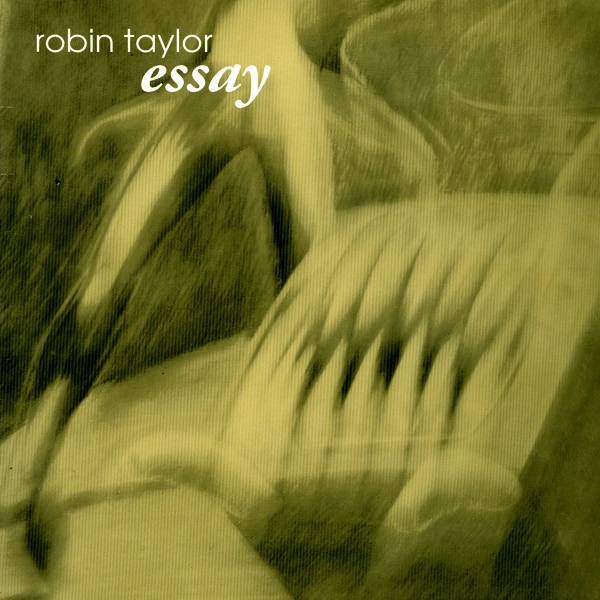 What steps did you take to get from low budget home-recordings to the point where you started producing your own recordings in your studio and releasing your own material?
What steps did you take to get from low budget home-recordings to the point where you started producing your own recordings in your studio and releasing your own material?
My home recording facilities got a little better during the 80s, but my main step was taken when I entered an art school for five months in 1988. There I befriended a young pupil, Jan Marsfeldt, who strongly encouraged me in what I was doing — or had been doing, as I had almost given up music at that point. Jan, who actually didn't have much of a musical background, was absolutely thrilled over the recordings I made him listen to; he'd never heard anything like it, he kept telling me. He played a little piano, and I thought he was quite good at it, so we started working together. As a bonus, the school gave us the opportunity to record a demo in a professional recording studio at the end of the semester — and that made my decision clear: this was what I wanted to do in the future; create music on a professional level — and we were both willing to fight very hard to make it happen. We kept a strong contact, when the school had finished, and we both saved up money to buy equipment, that would allow us to follow our dreams. Our first album release, Essay, came out in 1991 (bearing my name). It was recorded at home, and it sounds rather naive and lo-fi, I admit — but you have to start somewhere. Things improved very fast, and about the time (1995) when Jan backed out to take care of his family, we had already recorded four albums — including the first two by Taylor's Universe.
Do you earn your living exclusively from music, or do you have a regular job / profession like the rest of us?
The answer is no. After I began to deal with some health problems, I retired from my job as a graphic designer, so now I live from a small pension in addition to my income from music.
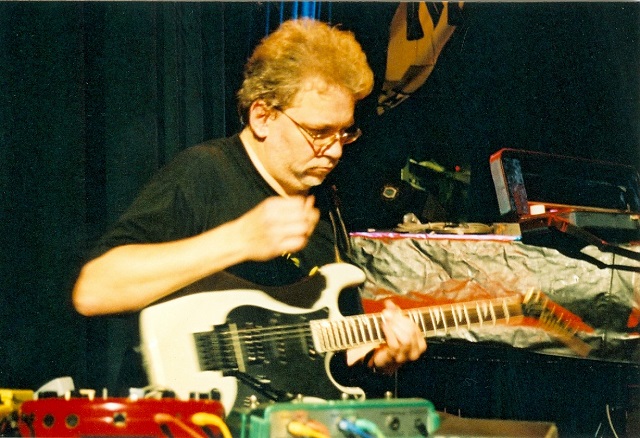 How did your association with saxophonist Karsten Vogel come about?
How did your association with saxophonist Karsten Vogel come about?
When we recorded the first Taylor's Universe album in the early 90s, I made connection to trumpet player Hugh Steinmetz, who was a veteran from the free jazz scene in the 60s, where Karsten Vogel was also an important figure. Hugh played on a couple of my albums, and in 1996 it was suggested that he formed some kind of an experimental big band, that was going to perform at an art exhibition here in Copenhagen. Amongst the many musicians, Karsten and I were invited. As Communio Musica, the band played a handful of gigs — and also recorded two albums, before it folded. It was a great honor for me to be in a band with Karsten, as I had always been a great admirer of his own famous groups, Burnin' Red Ivanhoe and Secret Oyster. I was at the same time time working on the third album by Taylor's Universe, Experimental Health, and when I asked him to join the recording sessions, he didn't hesitate to agree. It turned out so well, that he's been almost a regular member since, as well as contributing to several of my solo albums.
How did "Taylor's Universe" and for that matter "Taylor's Free Universe" come to be?
Taylor's Universe started out as a studio project, and it still is. After releasing a couple of albums in my own name, I thought that a band name would probably be a better idea, also because my music got more and more of a band structure. It was much like a musical workshop, with a lot of handpicked players passing by. Through the years, TU has become sort of a brand; my aim is to produce albums with a certain sound; recognizable, when you hear it. That doesn't mean, that the music is predictable — hopefully not!
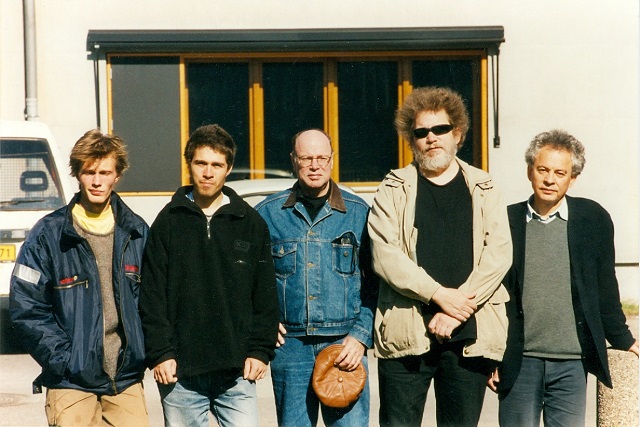 Taylor's Free Universe is, or was very different: at the time of the new millennium, Karsten Vogel talked me into forming a unit, that should play live gigs — but opposite what we were doing in the studio with the other group, the music of TFU should be totally improvised. We picked some players — some of them quite young — that we thought would fit in well, and just went ahead. In total we played around a dozen gigs, and released no less than five albums, some of them recorded live in concert. The idea of such a kind of band was interesting enough; no two concerts were alike, and we sometimes went pretty far in our experimentation, resulting in some very unique musical moments, but though we were hired to play at jazz clubs and festivals, I gradually began to lose interest, as we only had a very small following, and it became harder and harder to get jobs. Avant garde music isn't everyman's cup of tea — so we split after a few years, and I returned to composing and recording with the 'original' Taylor's Universe.
Taylor's Free Universe is, or was very different: at the time of the new millennium, Karsten Vogel talked me into forming a unit, that should play live gigs — but opposite what we were doing in the studio with the other group, the music of TFU should be totally improvised. We picked some players — some of them quite young — that we thought would fit in well, and just went ahead. In total we played around a dozen gigs, and released no less than five albums, some of them recorded live in concert. The idea of such a kind of band was interesting enough; no two concerts were alike, and we sometimes went pretty far in our experimentation, resulting in some very unique musical moments, but though we were hired to play at jazz clubs and festivals, I gradually began to lose interest, as we only had a very small following, and it became harder and harder to get jobs. Avant garde music isn't everyman's cup of tea — so we split after a few years, and I returned to composing and recording with the 'original' Taylor's Universe.
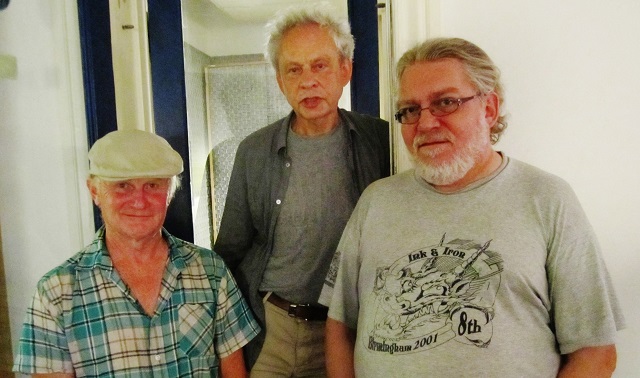 What are you working on right now that you're willing to share with our readers?
What are you working on right now that you're willing to share with our readers?
Right now I'm working on my follow-up to Worn Out, that had its release early this year. The title will be Evidence, and I'm very pleased that I've now included guitarist Claus Bøhling, Karsten Vogel's old companion from Secret Oyster in the line-up. The album is pretty close to completed, and I very much hope to see the release of it around late October or early November. It will be released on my own Marvel of Beauty label. I have no other plans, other than keeping Taylor's Universe on track and hopefully making better and better albums!
 How do people find your recordings?
How do people find your recordings?
My CD releases can be a little awkward to track down, as I haven't got the best distribution, but thanks to the internet, you can always do a search, which will lead you to some of the places who carry stock my music. I wish there were much more — but they all complain about the declining CD sales... You can see my complete discography at Progressor.net — and I'm always open for inquiries, comments and orders at: marvelofbeauty (at) hotmail (dot) com.
Filed under: Interviews
Related artist(s): Robin Taylor, Taylor's Universe / Taylor's Free Universe
What's new
These are the most recent changes made to artists, releases, and articles.
- Review: Sterbus - Black and Gold
Published 2026-03-03 - Release: Janel Leppin's Ensemble Volcanic Ash - Pluto in Aquarius
Updated 2026-03-02 15:06:51 - Release: Janel Leppin - Slowly Melting
Updated 2026-03-02 15:05:27 - Release: Alister Spence - Always Ever
Updated 2026-03-02 15:04:11 - Release: Let Spin - I Am Alien
Updated 2026-03-02 15:02:41 - Review: Falter Bramnk - Vinyland Odyssee
Published 2026-03-02 - Review: Exit - Dove Va la Tua Strada?
Published 2026-03-01 - Review: Steve Tibbetts - Close
Published 2026-02-28 - Release: We Stood Like Kings - Pinocchio
Updated 2026-02-27 19:24:02 - Release: Stephen Grew - Pianoply
Updated 2026-02-27 19:20:11 - Release: Thierry Zaboitzeff - Artefacts
Updated 2026-02-27 00:16:46 - Review: Kevin Kastning - Codex I & Codex II
Published 2026-02-27 - Release: Zan Zone - The Rock Is Still Rollin'
Updated 2026-02-26 23:26:09 - Release: The Leemoo Gang - A Family Business
Updated 2026-02-26 23:07:29 - Release: Ciolkowska - Bomba Nastoyashchego
Updated 2026-02-26 13:08:55 - Review: Immensity Crumb - Chamber Music for Sleeping Giants
Published 2026-02-26 - Release: The Gatekeepers - Diary of a Teenage Prophet
Updated 2026-02-25 15:55:58 - Review: Mars Lasar - Grand Canyon
Published 2026-02-25 - Listen and discover: Mordecai Smyth will not break your back
Published 2026-02-25
